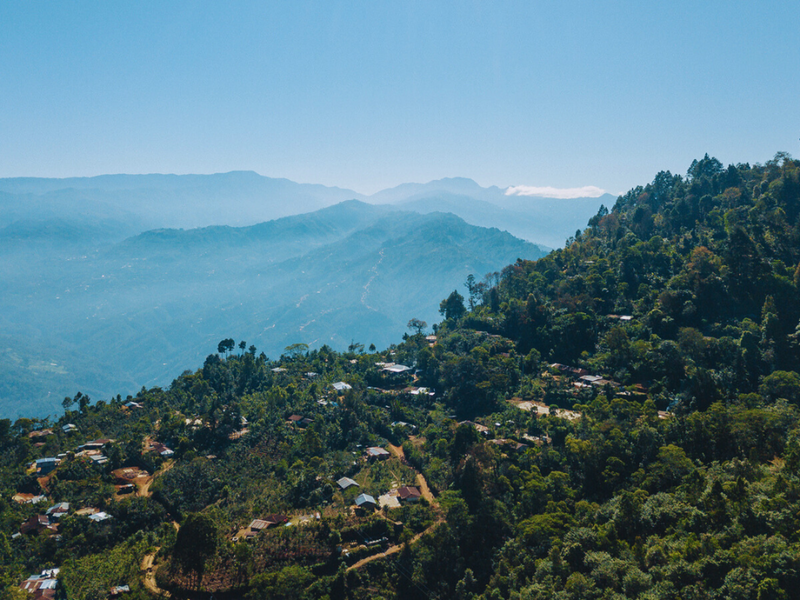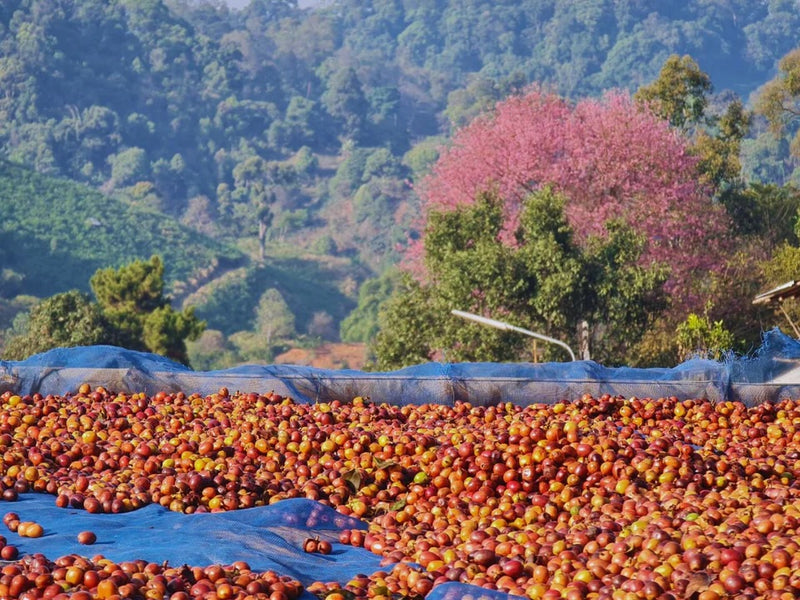Regional Coffee
Our Regional Coffees represent what we believe to be great expressions of the qualities and flavours associated with the Single Origin Coffee's local growing environment, the processing methods used and the commitment to quality of our producing partners.
Regional Coffee
Cuilco Huehuetenango, Guatemala
Plum | Red Grape | Panela
This coffee is from the Cuilco region in Huehuetenango, Guatemala, known for its diverse microclimates. The farmers here cultivate a range of varieties, including Bourbon, Caturra, and Pacamara, while preserving native forests. Despite challenges like coffee leaf rust, they’ve embraced sustainable practices and rust-resistant crops to ensure quality. This lot offers exceptional traceability and reflects the careful efforts of the community to produce distinctive, flavorful coffee.

Regional Coffee
Fernando Alfaro El Cocal, El Salvador
Jammy Blackberry | Cacao Nibs | Passionfruit
Finca El Cocal is located in the Apaneca mountains of El Salvador, where Fernando Alfaro manages his 10.5-hectare farm. Known for its ideal microclimate, the farm produces high-quality Bourbon, Pacas, and Gesha varieties. Fernando uses sustainable farming practices and advanced fermentation techniques to bring out the best flavors. His careful methods preserve the land’s heritage, ensuring the coffee reflects the unique characteristics of the region and offering a distinctive, flavorful profile.

UnCommon Coffee
Our UnCommon Coffees take things a step further, exploring unique varietals, experimental processing methods and high scoring micro-lot coffees with the aim of introducing new ways of experiencing coffee and satisfying the adventurous among us.
UnCommon Coffee
Huai Chomphu, Thailand
Stewed Fruit | Hawflake Sweet | Brown Sugar
The varietals grown in Huai Chomphu are as interesting as the process. A mix of Typica, Catuai, Chiang Mai, and SJ133 varietals are cultivated here. This combination of varietals and the unique processing methods gives the coffee from Huai Chomphu its distinctive flavour—one that carries the legacy of the land and its people.

UnCommon Coffee
Nyamurinda, Rwanda
Black Berry | Blackcurrant | Lemon Juice
The coffee processed by Nyamurinda thrives at high altitudes, between 1800 and 2000 meters above sea level. It is depulped with a mechanical disc pulper before undergoing a 12 to 14-hour dry fermentation stage in large tanks. The seeds are washed and graded by their varying density, with the higher density seeds contributing to this lot.





